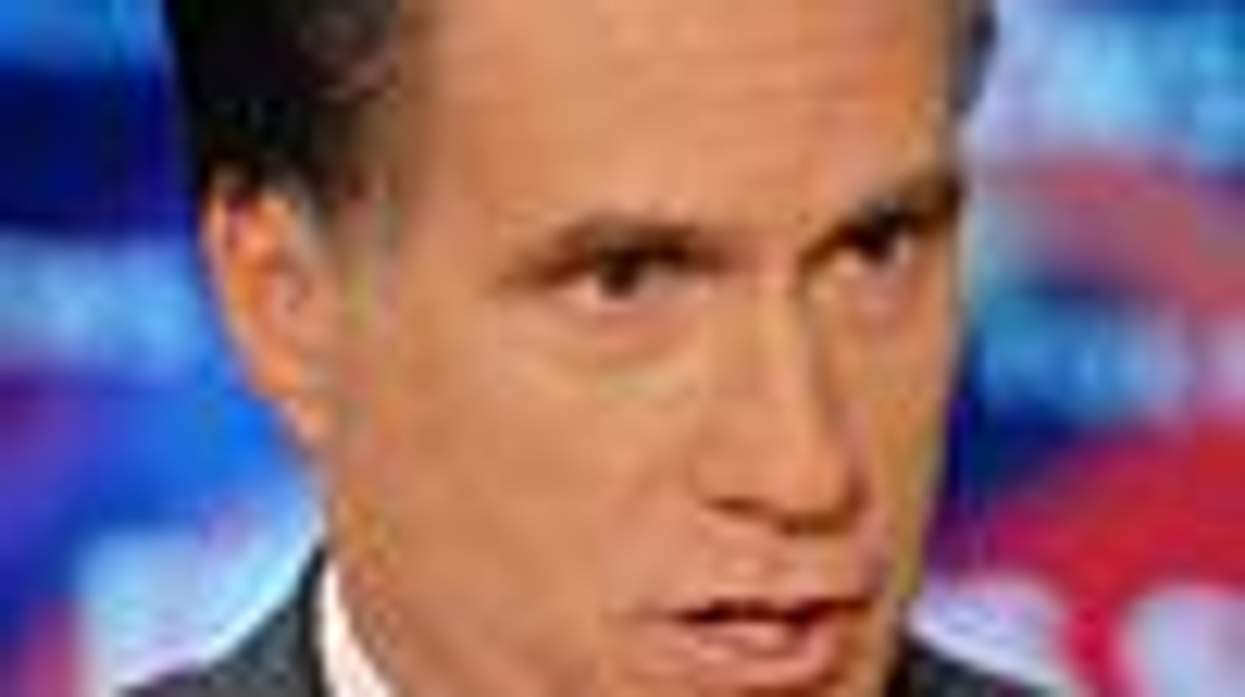Republican Mitt
Romney sought Sunday to deflect charges that he is a
flip-flopper, insisting he had learned from experience and
could be counted on to keep his campaign promises if
elected president.
Romney, a former
Massachusetts governor, also called on top rival Mike
Huckabee to apologize to President Bush. In an article in
the journal Foreign Affairs, Huckabee criticized
Bush's foreign policy as an ''arrogant bunker
mentality.''
Huckabee said no
apology is necessary and that Romney should read the
article.
Appearing on
NBC's Meet the Press, a somewhat defensive
Romney acknowledged that he has shifted positions on some
issues and explained that he did so after learning from
experience. He said it would be a mistake if a
candidate ''stubbornly takes a position on a
particular act and says, 'Well, I'm never changing my view
based on what I've learned.'''
''If you're
looking for someone who's never changed any positions on any
policies, then I'm not your guy,'' Romney said.
At the same time,
Romney insisted that as governor he kept all of his
campaign promises despite changing some views, and he said
he would stick to his promises if elected president.
''Bottom line:
All the positions you laid out today as a presidential
candidate, can you assure the voters you won't flip back to
some of the positions you had when you were governor
of Massachusetts?'' asked NBC moderator Tim Russert.
''Of course,''
Romney responded.
Russert also
questioned Romney about his unsuccessful Senate run in 1994,
when he promised to be ''more effective on gay rights
in the Senate than Ted Kennedy.''
RUSSERT: You say
you'd be a more effective leader on gay rights than Ted
Kennedy.
ROMNEY: And, and
let me -- let's, let's do them one by one. OK, Tim?
Let's just go through them one by one. And, and here's my
view. I don't believe in discriminating against
someone based upon their sexual orientation. And so I
would be effective in trying to bring greater
recognition of the, of the rights of people not, not to be
discriminated against. Let me...
RUSSERT: You said
-- you said that you would cosponsor the...
ROMNEY: Tim, Tim,
Tim...
RUSSERT: Wait a
minute. Wait a minute. This is important.
ROMNEY: OK, fine.
RUSSERT: You said
that you would sponsor the Employment
Non-Discrimination Act. Do you still support it?
ROMNEY: At the
state level. I think it makes sense at the state level for
states to put in provision of this.
RUSSERT: Now, you
said you would sponsor it at the federal level.
ROMNEY: I would
not support at the federal level, and I changed in that
regard because I think that policy makes more sense to be
evaluated or to be implemented at the state level. And
let me describe why.
RUSSERT: So you
did -- you did change.
Among other
issues:
-Abortion.
Romney acknowledged changing his views in 2004 from
supporting abortion rights to opposing abortion. He
said he did not entirely betray abortion-rights voters
either, because he did not seek to change
Massachusetts abortion laws.
-Taxes.
Romney said he promised not to raise taxes as governor and
did not go back on his word by raising fees by about
$240 million to help balance the budget. The fees were
on services such as gun licenses and training to
combat domestic violence. He explained that because the fees
were not on broad-based services, such as driver's licenses,
they did not ''have a sense, a feeling like a tax.''
''I ran as an individual who would not raise taxes,
and I didn't,'' he said.
-Guns.
Romney said, like President Bush, he would have signed an
extension of the federal assault weapons ban if Congress had
acted on it before it expired in 2004. A Des Moines
Register survey from October said, ''Romney opposes
reinstating the assault weapons ban that expired in
2004. He does not believe any more federal gun laws
are needed but said he would consider signing carefully
tailored legislation regulating weapons of 'unusual
lethality or power.'''
Romney repeated
the latter sentence on Sunday.
Romney also told
Russert he had ''the support of the NRA'' and ''received
the endorsement of the NRA'' as governor, but the gun-rights
group did not endorse him during his 2002
gubernatorial campaign. Romney received a ''Grade B''
from the group, but his opponent, Democrat Shannon O'Brien,
received an ''A.''
Romney's
talk-show appearance came as he is trying hard to overtake
Huckabee in Iowa and reclaim the lead he enjoyed for much of
the year. Huckabee recently moved to the front of the
Republican presidential field in Iowa, with the
state's caucuses less than three weeks away on January
3.
Romney has
defended Bush against Huckabee's criticisms of his foreign
policy. On Sunday he went a bit further, labeling the charge
''an insult'' and calling on Huckabee to tell the
president he was sorry. Huckabee leveled his criticism
in an article in the journal Foreign Affairs.
''Mike Huckabee
should apologize to the president,'' Romney said in
response to a question.
Huckabee said
Romney should read the article.
''It would really
help if he would do that. Because if he did, he would
see that there's no apology necessary to the president,''
Huckabee said on CNN's Late Edition. Huckabee
said he stood with Bush on tax cuts and sending more
U.S. troops to Iraq when Romney did not. ''So, you
know, I don't have anything to apologize for. But I'm
running for president of the United States. I've got to show
that I do have my own mind when it comes to how this
country ought to lead, not only within its own borders
but across the world.'' (Hope Yen, AP, with additional
reporting by The Advocate)





































































Charlie Kirk DID say stoning gay people was the 'perfect law' — and these other heinous quotes